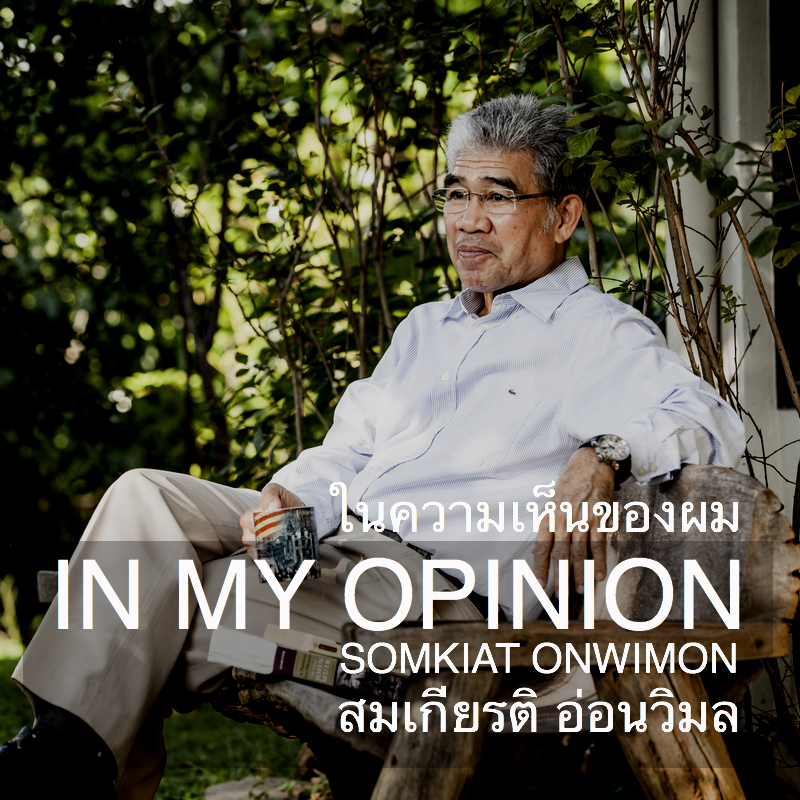|
Currently known as the South China Sea, this body of contentious water shall, from now on, be geographically-correctly called "THE SOUTH-EAST ASIAN SEA" (SEAS).
It's located south of China and surrounded by Southeast Asian countries. The United Nations Convention on the Law of the Sea (UNCLOS) recognizes 12 nautical miles off the furthest shore as national territorial water, and the exclusive economic zone 200 nautical miles further away. Countries of Southeast Asia surrounding this marginal sea west of the Pacific Ocean should have equal rights to administer their respective maritime territories and economic zones in accordance with UNCLOS. China has no right to claim the whole of SEAS as their own by merit of history and its namesake. Its namesake "South China Sea" does not signify automatic China's ownership, otherwise Thailand could claim the whole of Gulf of Siam. Likewise, India and Bangladesh can start a war for the Bay of Bengal. History belongs to the past and the present is today. The world today lives by international treaty, convention, and agreement. China must learn to abide by international rules. The South China Sea, therefore, is an irrelevant name and a ghost of the past. This body of peaceful water of South East Asia, form today onwards, shall be called "THE SOUTH-EAST ASIAN SEA" (SEAS). China must relinquish all claims and withdraw from all the islands within SEAS. ASEAN negotiation process should continue with full cooperation from China. Somkiat Onwimon 20 February 2017
2 Comments
24/6/2023 17:50:42
Q: According to the statement, it is argued that countries in Southeast Asia should have equal rights to govern their maritime territories and economic zones in the South China Sea, based on the principles of UNCLOS. Could you provide more information on the claim that China has no rightful ownership over the entire South China Sea based on historical grounds and its namesake?
Reply
Leave a Reply. |
AUTHOR
สมเกียรติ อ่อนวิมล Somkiat Onwimon (1948 - 20xx) lives in Thailand, studied political science and international relations from The University of Delhi (B.A. & M.A.) and The University of Pennsylvania (Ph.D.). He lectured at Chulalongkorn University, and later became a television news 'n documentary reporter-producer-anchorman. He was elected a member of Thailand's 1997 Constitution Drafting Assembly, elected a senator in 2000, and appointed member of the National Legislative Assembly in 2007. Now at his Pak Chong home, he lives a quiet country life of reading, writing, and thinking. Archives
June 2018
Categories
All
|
- REFLECTION
- MORNING WORLD
- IN CONTEXT
-
THAILAND
- THE MONARCHY >
-
NATIONAL PARKS OF THAILAND
>
- KHAO YAI NATIONAL PARK
- PHA TAEM NATIONAL PARK
- PHU WIANG NATIONAL PARK
- NAM NAO NATIONAL PARK
- PHU HIN RONG KLA NATIONAL PARK
- PHU KRADUENG NATIONAL PARK
- PHU RUEA NATIONAL PARK
- MAE YOM NATIONAL PARK
- DOI SUTHEP-PUI NATIONAL PARK
- DOI INTHANON NATIONAL PARK
- THONG PHA PHUM NATIONAL PARK
- KAENG KRACHAN NATIONAL PARK
- MU KO ANG THONG NATIONAL PARK
- MU KO SURIN NATIONAL PARK
- MU KO SIMILAN NATIONAL PARK
- HAT NOPPHARATA THARA - MU KO PHI PHI NATIONAL PARK
- MU KO LANTA NATIONAL PARK
- TARUTAO NATIONAL PARK
-
THE LIBRARY
- SUFFICIENCY ECONOMY BY KING BHUMIBOL OF THAILAND
- SOFT POWER (Joseph Nye, Jr.)
- CONVERSATIONS WITH THAKSIN by Tom Plate
- THE GREAT ILLUSION/Norman Angell
- MORNING WORLD BOOKS >
- SCIENCE >
- DEMOCRACY IN AMERICA
- FIRST DEMOCRACY
- JOHN MUIR
- MODELS OF DEMOCRACY
- MULAN
- THE VOYAGE OF THE BEAGLE
- ON THE ORIGIN OF SPECIES
- PHOOLAN DEVI
- THE REPUBLIC
- THE TRAVELS OF MARCO POLO
- UTOPIA
- A Short History of the World [H.G.Wells]
- WOMEN OF ARGENTINA
- THE EARTH : A Very Short Introduction
- THE ENGLISH GOVERNESS AT THE SIAMESE COURT
- TIMAEUAS AND CRITIAS : THE ATLANTIS DIALOGUE
- HARRY POTTER
- DEMOCRACY / HAROLD PINTER
- MAGNA CARTA
- DEMOCRACY : A Very Short Introduction
- DEMOCRACY / Anthony Arblaster]
- DEMOCRACY / H.G. Wells
- ON DEMOCRACY / Robert A. Dahl)
- STRONG DEMOCRACY
- THE CRUCIBLE
- THE ELEMENTS OF STYLE
- THE ELEMENTS OF JOURNALISM | JOURNALISM: A Very Short Introduction
- LOVE
- THE EMPEROR'S NEW CLOTHES
- THE SOUND OF MUSIC
- STRONGER TOGETHER
- ANIMAL FARM
- POLITICS AND THE ENGLISH LANGUAGE
- GEORGE ORWELL
- HENRY DAVID THOREAU >
- MAHATMA GANDHI
- THE INTERNATIONAL ATLAS OF LUNAR EXPLORATION
- พระมหาชนก
- ติโต
- นายอินทร์ผู้ปิดทองหลังพระ | A Man Called Intrepid
- แม่เล่าให้ฟัง
- SUFFICIENCY ECONOMY
- พระเจ้าอยู่หัว กับ เศรษฐกิจพอเพียง
- KING BHUMIBOL AND MICHAEL TODD
- ... คือคึกฤทธิ์
- KING BHUMIBOL ADULYADEJ: A Life's Work
- THE KING OF THAILAND IN WORLD FOCUS
- พระราชดำรัสเรื่องร่างรัฐธรรมนูญ
- TESLA INTERVIEW 1926
- IN MY OPINION
- S.ONWIMON
THAIVISION®
REFLECTION ON EVENTS ON PLANET EARTH AND BEYOND
©2023 All Rights Reserved Thai Vitas Co.,Ltd. Thailand
✉️
[email protected]
REFLECTION ON EVENTS ON PLANET EARTH AND BEYOND
©2023 All Rights Reserved Thai Vitas Co.,Ltd. Thailand
✉️
[email protected]

